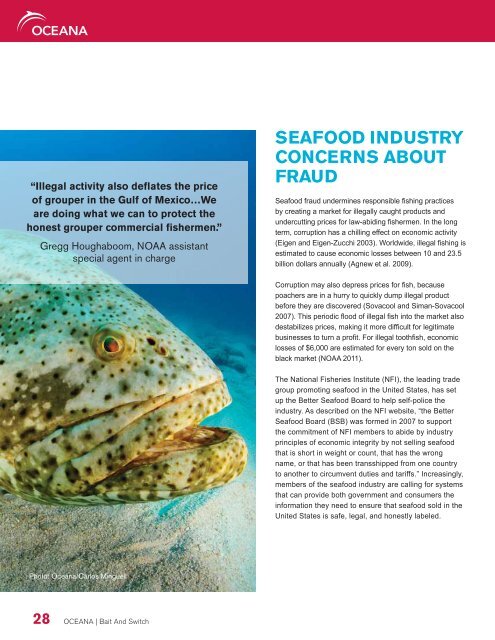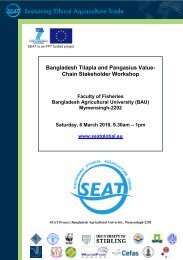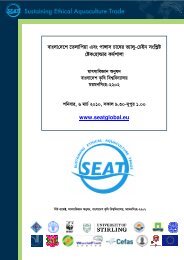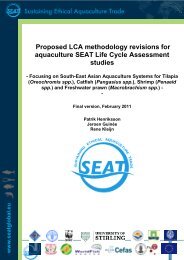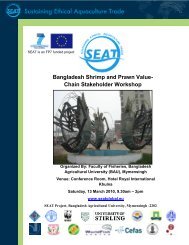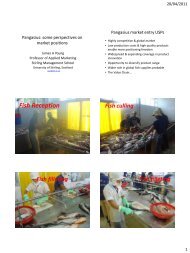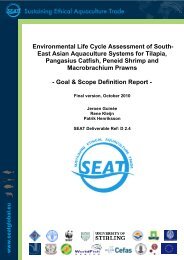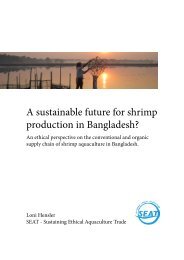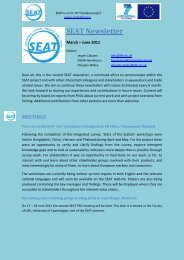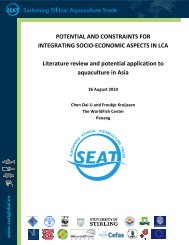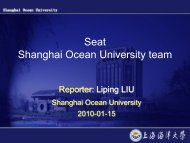Bait and Switch:
Bait and Switch:
Bait and Switch:
You also want an ePaper? Increase the reach of your titles
YUMPU automatically turns print PDFs into web optimized ePapers that Google loves.
“illegal activity also deflates the price<br />
of grouper in the Gulf of mexico…we<br />
are doing what we can to protect the<br />
honest grouper commercial fishermen.”<br />
Gregg Houghaboom, noaa assistant<br />
special agent in charge<br />
Photo: oceana/carlos Minguell<br />
28<br />
oceana | <strong>Bait</strong> <strong>and</strong> <strong>Switch</strong><br />
Seafood induStry<br />
concernS aBout<br />
fraud<br />
Seafood fraud undermines responsible fishing practices<br />
by creating a market for illegally caught products <strong>and</strong><br />
undercutting prices for law-abiding fishermen. In the long<br />
term, corruption has a chilling effect on economic activity<br />
(Eigen <strong>and</strong> Eigen-Zucchi 2003). Worldwide, illegal fishing is<br />
estimated to cause economic losses between 10 <strong>and</strong> 23.5<br />
billion dollars annually (Agnew et al. 2009).<br />
Corruption may also depress prices for fish, because<br />
poachers are in a hurry to quickly dump illegal product<br />
before they are discovered (Sovacool <strong>and</strong> Siman-Sovacool<br />
2007). This periodic flood of illegal fish into the market also<br />
destabilizes prices, making it more difficult for legitimate<br />
businesses to turn a profit. For illegal toothfish, economic<br />
losses of $6,000 are estimated for every ton sold on the<br />
black market (NOAA 2011).<br />
The National Fisheries Institute (NFI), the leading trade<br />
group promoting seafood in the United States, has set<br />
up the Better Seafood Board to help self-police the<br />
industry. As described on the NFI website, “the Better<br />
Seafood Board (BSB) was formed in 2007 to support<br />
the commitment of NFI members to abide by industry<br />
principles of economic integrity by not selling seafood<br />
that is short in weight or count, that has the wrong<br />
name, or that has been transshipped from one country<br />
to another to circumvent duties <strong>and</strong> tariffs.” Increasingly,<br />
members of the seafood industry are calling for systems<br />
that can provide both government <strong>and</strong> consumers the<br />
information they need to ensure that seafood sold in the<br />
United States is safe, legal, <strong>and</strong> honestly labeled.


